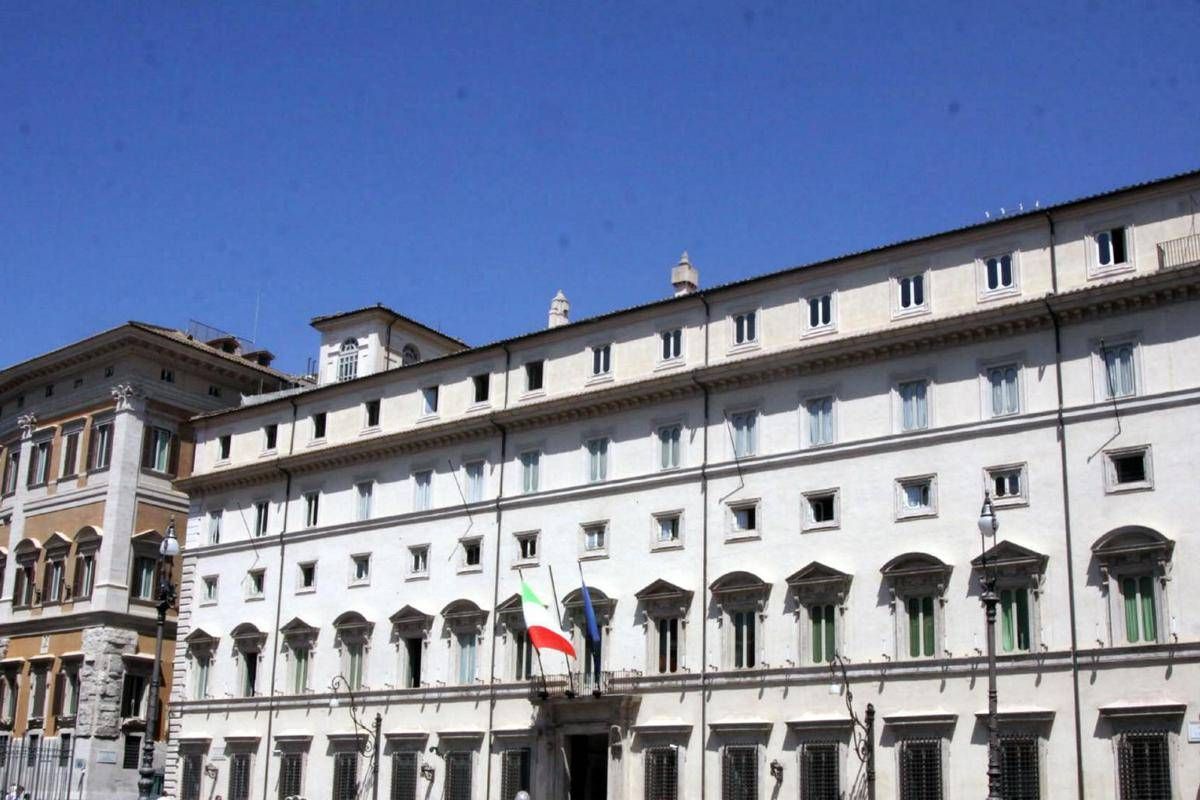
[ad_1]

Published on: 06/10/2020 6:45 AM
Green light for the new immigration and security decree that sends the decrees approved by former Interior Minister Matteo Salvini to the attic and introduces, among other things, stricter measures against violent people. The Council of Ministers, at the proposal of President Giuseppe Conte and Interior Minister Luciana Lamorgese, reports the Palazzo Chigi press release, has approved a decree-law that introduces urgent provisions on immigration, international and complementary protection, modifications to articles 131-bis and 588 of the penal code, as well as measures relating to the prohibition of access to public establishments and places of public entertainment and to combat the distorted use of the web.
The provision makes modifications to current regulations, among other things, regarding the requirements for the Issuance of the residence permit for the protection needs of the foreign citizen., of limits to the entry and transit of naval units in Italian territorial waters and of inapplicability of the cause of non-sanction for “tenuous particular of the fact” to some types of crimes.
As to international protection of foreigners, current legislation prescribes the prohibition of expulsion and return in case the repatriation involves risk of torture for the person concerned. The decree adds to this hypothesis the risk that the foreigner will be subjected to inhuman or degrading treatment and his expulsion is prohibited even in cases of risk of violation of the right to respect for his private and family life. In such cases, the issuance of a residence permit for special protection is foreseen. Still on the issue of the legal status of foreigners, the provision also addresses the issue of convertibility of residence permits issued for other reasons into work permits. In addition to the categories of convertible permits already provided for, those of special protection, calamity, elective residence, acquisition of citizenship or statelessness, sports activity, artistic work, religious reasons and assistance to minors are added.
The provision also reform the reception system aimed at applicants for international protection and holders of protection, with the creation of the new “reception and integration system”. First aid activities will continue to be carried out in ordinary and extraordinary government centers. Subsequently, the System will be divided into two levels of services: the first dedicated to applicants for international protection, the second to those who already have it, with additional services aimed at integration.
The text then intervenes in sanctions relating to the prohibition of the transit of ships in the territorial sea. It is envisaged that, in the event of reasons of public order and security or of violation of the rules on smuggling of migrants by sea, the prohibition measure will be adopted, at the proposal of the Minister of the Interior, in agreement with the Minister of Defending. and with the Minister of Infrastructure, after informing the Prime Minister. For rescue operations, the prohibition regulations will not apply in the event that there has been communication with the coordination center and the flag State and the instructions of the competent authority for search and rescue at sea are respected. In case of violation of the prohibition, reference is made to the current regulations of the Navigation Code, which provides imprisonment of up to two years and a fine of between 10,000 and 50,000 euros. Therefore, the administrative sanctions previously introduced are eliminated.
Daspo arrives against the violent nightlife
Again, the decree introduces rules that strengthen the devices to ensure public safety, implementing the measures to prohibit entry to public establishments and places of public recreation or adjacent to them, as well as the contrast with the phenomenon of drug trafficking through websites.
In the first case, the so-called “Urban daspoMaking it possible for the Questore to apply the prohibition of access to public places also against subjects who have reported one or more complaints or a non-final conviction, in the last three years, related to the sale or transfer of narcotic or psychotropic substances. In addition, action is taken on the sanctioning treatment resulting from the violation of the prohibition, providing, in particular, the imprisonment from six months to two years and a fine of 8,000 to 20,000 euros.
With the second intervention, the blackout mechanism, already used to combat online child pornography, is extended to those sites that, based on objective elements, should be considered used for the commission of drug crimes.
In addition, the penalties for subjects involved in fights, providing that, in the event that someone dies or suffers personal injury, the mere fact of their participation in it is sanctioned by the prison from six months to six years.
There are also provisions to make the exercise of the activities of the National Guarantor of the rights of persons deprived of personal liberty more effective. Finally, a strengthening of the sanctions applied in the case of communications from prisoners subject to the restrictions referred to in article 41-bis of Law No. 354 of 1975 and a new type of crime that punishes anyone who brings or has mobile phones in prisons or mobile communication devices.
REPRODUCTION RESERVED © Copyright Adnkronos.
[ad_2]